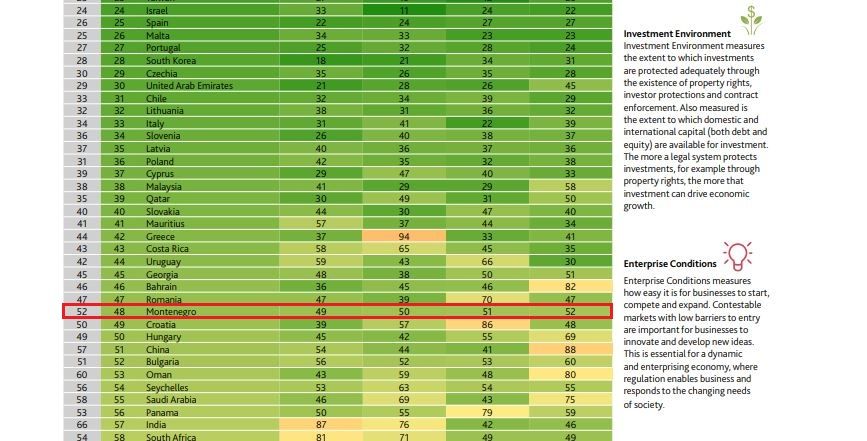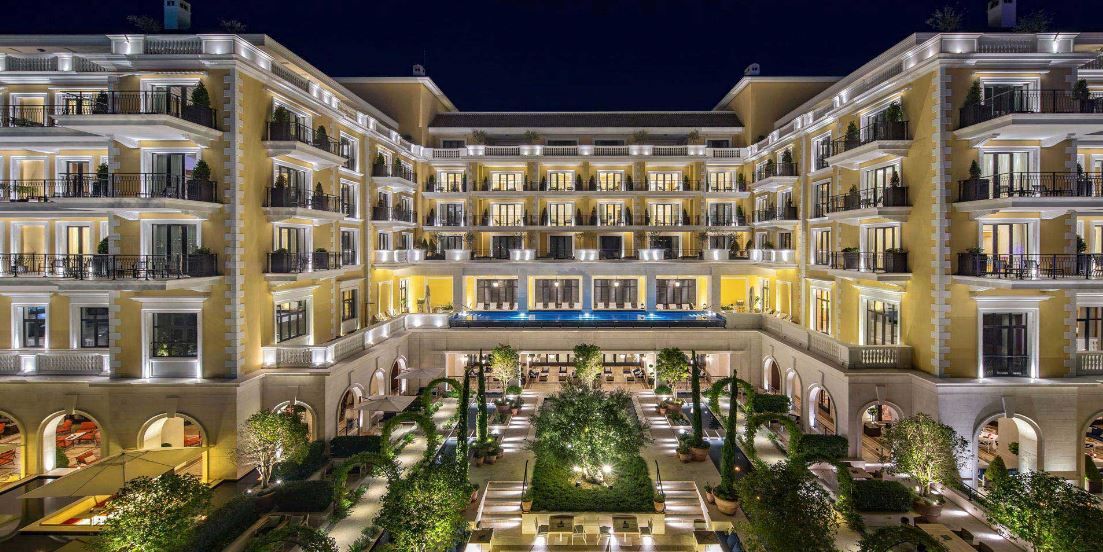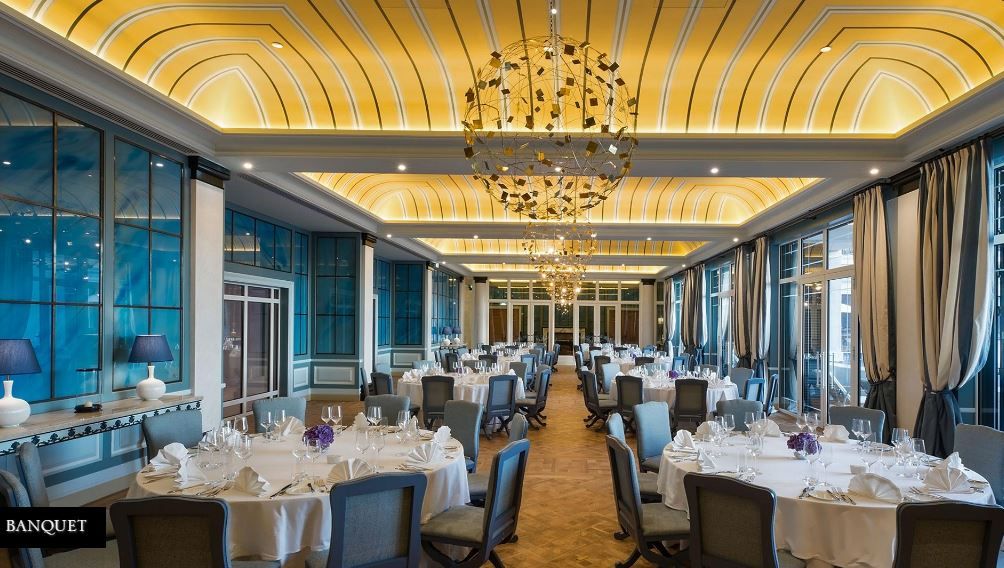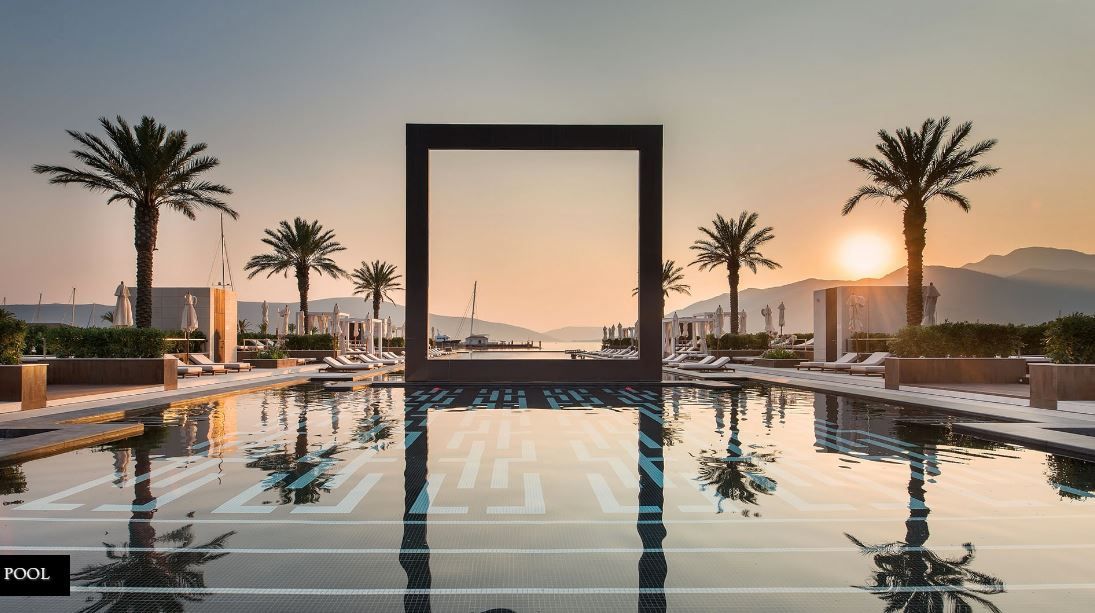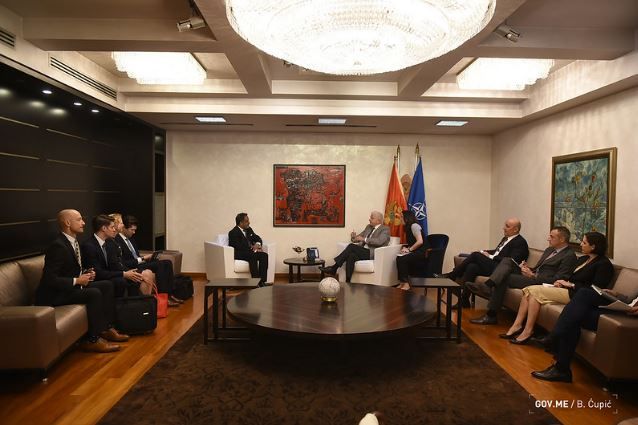Displaying items by tag: montenegro
29 June 2019 - The Central Bank of Montenegro has begun preparations for introducing instant payments, which, when put into use, will significantly increase non-cash payments in Montenegro, said the representatives of this supreme monetary institution to Pobjeda daily.
Instant payments are a new way to exchange money and purchase services in seconds. Compared with wire transfers, they allow the transfer of money from the payer bank account to the payee bank account almost immediately, instead of requiring few business days. These payment systems have been developed (and are currently under development) worldwide as the need faster and reliable transaction is the new economy common requirement.
Instant payments represent electronic retail payment solutions available 24/7/365 and resulting in the immediate or close-to-immediate interbank clearing of the transaction and crediting of the payee’s account with confirmation to the payer (within seconds of payment initiation).
The instant payment provides a number of innovative services, and the Central Bank of Montenegro claims that it will change the cash-payment and non-cash payment ratio.
"The trend of growth of non-cash payment transactions is expected, which will be affected by the instant payment for which the Central Bank started preparatory activities," said the representatives of the Central Bank of Montenegro, answering the question about what trends in non-cash payments is expected in the upcoming period.
Asked how much Montenegro is “lagging” in cashless payments compared to the countries of the region and the European Union, they said that they do not have enough comparative data to make a statement on that matter.
"By continuing to monitor and implement the European Union's legislation in the field of payment services, the CBM has provided all the necessary prerequisites for new services, which has led commercial banks to follow trends in the field of payment services, as do the world's banks. Electronic, card and mobile payments in Montenegro recorded a trend of continuous increase, and banks are increasingly available to customers, "the CBM explained.
Read more about the business environment in Montenegro at TMN's dedicated page.
29 June 2019 - On this year’s list of Global Index of Economic Openness, regularly published by the UK-based Legatum lnstitute, Montenegro is the best-ranked country in the region.
The report covers 157 countries, ranked concerning the degree of openness and the assessment of factors affecting trade capacity, both domestically and internationally.
According to the analysis, Montenegro is ranked 48th, thus moving up four places compared to 2018, when it was ranked 52nd. Individually, according to the categories analysed, Montenegro is ranked 49th in the area of infrastructure and access to the market. According to the investment climate it is ranked 50th, business conditions 51st, and the rule of law 52nd.
When it comes to the region, Croatia is ranked 49th, North Macedonia 59th, Serbia 65th, Bosnia and Herzegovina 93rd, while this report does not cover data for Kosovo.
According to the findings of the report, Montenegro has continuously improved the openness of its economy for ten years and is ranked 2nd in terms of the success of a ten-year change in comparison with other countries covered by the report. Montenegro was ranked 59th in 2009 and since then it has been continuously recording growth on this list.
Taking into account the specific indicators that belong to different pillars, on the basis of which the openness of the economy is analysed, Montenegro is ranked 1st in terms of liberalisation of foreign trade, the existence of a consensus on democracy and market economy as key goals of the society, and the fact that work skills do not represent limitations for business.
Worldwide, Hong Kong is ranked 1st in terms of openness, Singapore and the Netherlands are at the second and third position, while the United Kingdom is ranked 7th and the United States is ranked 9th.
The aim of this research is not only to present the benefits that create economic competitiveness and openness, but to define and measure the level of economic openness in a way that will be useful to political leaders for the implementation of adequate policies that will improve economic stability and prosperity.
Read more about the business environment in Montenegro at TMN's dedicated page.
29 June 2019 - Marie Claire magazine recently published an article explaining why Montenegro is the perfect travel destination for all tourists worldwide. “If you’ve never thought of holidaying in Montenegro, here’s why you should” provided information not only on the offer of the gorgeous five-star Hotel Regent, but also on the best tips on how to spend the most fantastic holiday and enjoy the Adriatic charm in Montenegro.
Think glorious blue seas, cobbled streets and orange rooves that stretch for miles, similar to its neighbour Croatia only much quieter. Montenegro has been tipped as one of the continent’s most up-and coming travel destinations, and with good reason.
Here’s why you should head to the country’s UNESCO-protected Boka Bay area on the Adriatic coast for your next European adventure.
Just 10 minutes by car from Tivat Airport and about to celebrate its fifth birthday, Regent Porto Montenegro is the five-star jewel in the region’s crown. We’re talking the most comfortable beds, daylight flooded-rooms and cosy interiors that’ll put you at ease from the moment you settle into your room.
The views are extraordinary – set right on the beautiful Monaco-esque harbour you’ll be able to gaze out at miles of sea and mountains, a world away from the greyness of day-to-day life in the UK.
Porto Montenegro itself is home to a number of restaurants, bars, designer shops, pool club and nightlife, so you’re spoilt for choice in terms of things to do in the village-like area, but keep reading for all that the hotel has to offer.
Feeling extra flush? The Suite Life package includes private airport transfers, breakfast, cocktails in the cosy Library Bar or pool club, and a 50€ voucher redeemable in the hotel’s beautiful spa. From £831pp per night, you’ll also get tickets to events in Porto Montenegro and a private Naval Heritage Museum tour. Dreamy.
Murano is the hotel’s luxury eating spot, serving carefully crafted dishes and taking advantage of all of the local seafood and wine (great for fish lovers). There’s also the option to have a private Chef’s Table dining experience for 4-6, for a more intimate eating session. In the mornings, breakfast is also served at Murano; if to your taste, the truffle scrambled eggs are a must-have at least once during your stay.
For a more casual eating option, head to the Gourmet Corner, a lovely breakfast and lunch spot with the feel of an Italian deli. On Thursdays between May and mid-September, chefs will be hosting Al Fresco dining sessions here and cooking up a range of delicious pasta and risotto dishes. And after dinner, the cosy Library bar is perfect for an evening tipple.
When you need a moment of peace and quiet, pop up to the hotel’s spa floor for some time out. You’re well equipped with a sauna, steam room, experience shower, Turkish bath and swimming pool, plus plenty of space to sit and relax.
Aromatherapy Associates products and treatments are also both on offer to help you achieve maximum relaxation. Try the Regent Spa Signature Treatment, a head-to-toe combination of massage and lymphatic drainage complete with an aromatherapy oil best suited to your needs. If you’re feeling fancy, there’s even the option to have your treatment on a private yacht…
If you are looking for things to do in Montenegro, you should definitely go for wine tasting! Not far from Podgorica airport is the Plantaže vineyard and Sipcanik wine cellar, housed in a former secret hangar. Head for a wine tasting session, paired of course with delicious fruits and cheeses, or simply to pick up a few bottles to take home. Did we mention it’s much cheaper than you’ll find in the supermarket?
Made up of narrow streets and squares, the old town of Kotor also has plenty of history and interesting architecture on offer. Explore the city on your own or book in for a walking tour to see the area through the eyes of a local. For a few euros you can also climb the steps of the city walls for the postcard-perfect bird’s eye view.
If you’re interested in the local cuisine, there’s also an abundance of local restaurants and coffee spots to choose from, with Perast’s must-see Our Lady of the Rocks a short drive away. We recommend sitting in the town’s Square of the Arms for a people watching session paired with delicious coffee.
Read more tips about spending your holiday in Montenegro at TMN's dedicated page.
28 June 2019 - During the conference Seven Years of Montenegro's negotiations with the EU, Prime Minister Duško Marković noted that Montenegro’s goals coincide with the goals of the enlargement process, that Montenegro has progressed confidently towards the EU although it is the first time that a new, more demanding negotiating model is being implemented, that it had been implementing some policies as if it was already an EU member state and that the Government will organise meetings with relevant non-governmental organisations in order to provide the synergy of the accession process.
"The most important political priorities of Montenegro are compatible with the goals of the enlargement process. Regional cooperation, reaching European standards and promoting of democratic values and the rule of law, together with economic development are within its core. It is what drives us and what we consider as the highest value for Montenegro, the Western Balkan region but also for the EU. Montenegro has progressed confidently towards membership in the EU. We have started negotiations based on a new model which is being implementing for the first time, negotiations based on the new and demanding principles. Montenegro is the first country with this level of involvement of civil society, faced with different challenges. A special Montenegro’s feature is that in this period we have carried out a parallel NATO integration process and two years ago we became the 29th NATO member. We have to agree that this was a special endeavour of a whole administration. We strongly promote European values trough the fulfilment of the obligations on the path to the EU and it is our most important foreign policy goal. Today, Montenegro’s accession to the EU is supported by two - third of citizens, according to the latest research," Prime Minister Duško Marković stated at the opening of the conference Seven years of Montenegro’s negotiations with the EU, which was sponsored by NGO Centre for Civic Education in Podgorica.
According to the report by the Government of Montenegro, speaking about Montenegro’s achievements, the Prime Minister stated that Montenegro has opened 32 out of 33 negotiating chapters and that Montenegro has support of 22 EU member states for the opening of the remaining chapter.
"However, the work on Chapter 23 – Judiciary and Fundamental Rights and 24 – Justice, Freedom and Security marked the previous period. Most of the temporary benchmarks have been fulfilled (83). Implementing or amending over 70 laws in chapters 23 and 24 significantly improved the legislative framework in key areas which speaks volumes about the scope and complexity of the reform process in the rule of law area. I want to highlight that institutional framework for law implementation is significantly strengthen by strengthening the administrative capacity of the existing one, but also by establishing new institutions such as Anti-Corruption Agency, Special State Prosecutor’s Office, Sector for seized property, Centre for training of the judiciary and the State Prosecutor’s Office, Centre for asylum seekers and the Reception center for foreigners. I want to point to the concrete results which have been recognised in the last European Commission's report for Montenegro. In addition to the continuous progress in the legislative field and in the area of institution building, the European Commission notes the initial balance of the results achieved in the fight against high-level corruption and in the certain areas of organised crime, such as money laundering, financial investigations, temporary seizure of the property acquired through criminal activity. It was noted, as well, that the progress achieved in judicial cooperation, as well as boosted international police cooperation, yield concrete results," the Prime Minister pointed out.
When referring to the achievements of the negotiation process, the Prime Minister said that around 800 students and teachers attended one of the European universities, that Montenegro has achieved a national target of 33% of renewable energy sources in total final consumption and that the country has been successfully planned over EUR 260 million of non-refundable support from the European Union and achieved significant success in their use.
"Since 2014, within the framework of the Berlin Process, through the Western Balkan Investment Framework, Montenegro has received 120 million euros of EU support for seven infrastructure projects, with additional funds for project preparation. Finally, with regard to investment in infrastructure financed or co-financed by EU funds, during the first seven years of negotiations, funds of approximately EUR 167 million have been approved for infrastructure projects in various fields and for various purposes. When dealing with this topic, I want to look at an important fact that is being ignored when it comes to not only the presence but also the commitment of the EU to the Western Balkans. Many analyzes show that over the past 10 years, the European Union has invested over 8 billion euros in the region. Are our citizens familiar with the fact? Such data are often in the shadow of other, more bureaucratic messages, which, although they are also important, do not indicate the true extent of the Union's commitment to the Western Balkans and Montenegro. Such messages must come from high addresses of the Union, as well as from us who implement and promote the European Union's policy and its values. The perception must not be determined only by dry data, but by the overall picture of why the accession process is important and how important it is to both sides. Especially because the Union we are aiming for is undeniably more present than other actors in the region," Prime Minister Duško Marković pointed out.
The Prime Minister concluded by announcing new meetings with the non-governmental sector in order to re-ensure the synergy of the negotiation process.
"Cooperation with the civil sector and non-governmental organisations is an important part of the process. As we know, since the beginning of the negotiation process, we have been open to their contribution, and it has been very important in these seven years, both from the aspect of independent monitoring, but also in terms of providing knowledge the administration lacks. Lately, the Government has suffered constant criticism that we have abated our desire for such cooperation. In the context of the new approach, we will put this issue on the agenda by organising a meeting with all NGOs which take part in working groups and other relevant NGOs to restore confidence and synergy in this key process for us. The Government is, if it is wrong, ready to confess its mistake as it is ready for cooperation," Prime Minister Duško Marković stressed.
CEO of the Regional Office of the Friedrich-Ebert-Stiftung Foundation Max Brandle, the Executive Director of Centre for Civic Education Daliborka Uljarević, Chief Negotiator Aleksandar Drljević and Head of the Delegation of the European Union to Montenegro, Ambassador Aivo Orav, also spoke at the conference.
Read more about politics in Montenegro at TMN's dedicated page.
28 June 2019 - The Montenegrin economy in 2017 and 2018 was characterised by strong economic growth rates of 4.7% and 4.9% in 2017 and 2018, and in this way Montenegro was one of the fastest growing economies in the Western Balkans and among the fastest growing of the EU economies, said the Director General of the Directorate for Economic and Development Policy at the Ministry of Finance Iva Vuković at a press conference on June 27 following the Cabinet session.
Montenegrin Cabinet adopted the Spring Analysis of Macroeconomic Trends and Structural Reforms – 2019 during the session held on June 27.
According to the report of the Government of Montenegro, at the session, it was noted that the greatest positive contribution to the growth of the economy in 2018 came from intensified investment activities and increased consumption of households. Increased investment activity is the result of private investments dominant in the sectors of tourism and energy, while public investments also contribute through increased investment activity in the construction of the highway, as well as other local and regional roads.
The largest contribution of investments to real GDP growth was 4%, while the second largest contribution came from household consumption of 3.4% and this is the result of a record-breaking tourist season, growth in lending activity, growth of remittances from abroad and employment growth.
"Tourism revenues in 2018 exceeded one billion euros, we had twice as much export of electricity, increased aluminum exports and increased export of pharmaceutical production, but all this was not enough to neutralise high imports dominantly for the needs of building investment projects, and that the contribution of net exports to real GDP growth was negative by 2.1% ", emphasised General Director Vuković, adding that Montenegro is at 47% of the EU average, according to Eurostat data (regional GDP per capita comparison as the EU average according to the purchasing power standard for 2018), followed by Albania, Bosnia and Herzegovina, Northern Macedonia and Serbia, with a lower average development compared to EU countries.
In the first quarter, the Monstat stated that the economic growth rate was at the level of 3%, and macroeconomic indicators can see a diverse situation depending on the sector. Montenegro has sectors that experienced extremely strong growth rates in the first quarter, while there are sectors that, due to objective circumstances, experienced a downturn. Thus, the sectors that experienced extremely strong growth in the first quarter is the tourism sector with 44.1% more arrivals and 22.5% more tourist nights, and this could be a signal or indicator of yet another record-breaking tourist year.
Read more about the business environment in Montenegro at TMN's dedicated page.
28 June 2019 - Prime Minister Duško Marković recently hosted a delegation of the International Monetary Fund (IMF), led by Head of the IMF Mission to Montenegro Srikant Seshadri.
According to the report by the Government of Montenegro, the meeting concluded that the Fiscal Strategy, adopted by the Government two years ago, was successful and generally yields good and expected results and that the maintenance of fiscal discipline remains a priority of the Government in the forthcoming period.
"This Government will abide by all obligations arising from our Fiscal Consolidation Programme, addressing the needs of citizens and development," Prime Minister Marković said at the meeting.
The Prime Minister and the Head of the IMF Mission to Montenegro agreed that economic growth over the past two years exceeded the expectations of international experts and pointed out that such a high base is a challenge in this year and in the next period, especially after the completion of the priority section of the Bar – Boljare motorway. In this context, PM Marković reiterated Montenegro's determination to continue working on creating all the preconditions for defining the planning and financial elements of the continuation of the motorway construction on the principle of a sustainable solution.
The IMF delegation said that in the coming period it will focus on: reform of the pension system, public sector optimisation and full harmonisation of our tax system with the European Union system.
Read more about Politics in Montenegro at TMN's dedicated page.
27 June 2019 - The Second session of the Mixed Commission for Economic Cooperation between the Government of Montenegro and the Government of Azerbaijan took place in Baku recently, during the bilateral visit of the Prime Minister of Montenegro Duško Marković to Azerbaijan. Minister of Economy Dragica Sekulić headed the Montenegrin delegation.
As a result of the work of the aforementioned commission, the Protocol of the Second session of the Mixed Commission for Economic Cooperation between the Government of Montenegro and the Government of the Republic of Azerbaijan was signed defining concrete modalities of cooperation in areas recognised as mutually beneficial, such as trade, energy, transport, tourism, environmental protection, agriculture, science, education, labour and social welfare.
According to the official report of the Ministry of Economy of Montenegro, the Montenegrin delegation met in Baku with Co-Chairman of the Commission from the Azerbaijani side Sahil Babayev.
Expressing satisfaction with the presence of a large number of the Azerbaijani investments in Montenegro, the Minister of Economy of Montenegro pointed out that efforts should be taken to increase the level of trade exchange.
Minister Sekulić welcomed her Azerbaijani counterpart's initiative to open Azerbaijan's trade house in Montenegro and stressed Montenegro's willingness to share with Azerbaijan its experience and expertise gained in the process of joining the World Trade Organisation.
On the same occasion, Minister of Public Administration of Montenegro Suzana Pribilović participated in the United Nations Public Service Forum (UNPSF) titled "Achieving the Sustainable Development Goals through effective Delivery of Services, Innovative Transformation and Accountable Institutions".
"We are constantly working on improving the work of electronic administration and increasing the number of electronic services. Through the new Law on Electronic Signature and Identification, we have created the conditions for high-quality electronic business, established a new system of protection against cyber attacks and we managed to protect the system from cyber attacks in the previous period. Also, through securing the continuity of the reform processes, we are committed to meeting the standards and values inherent in modern societies," Minister Pribilović concluded on this occasion.
Read more news about business in Montenegro at TMN's dedicated page.
27 June 2019 - Prime Minister of Montenegro Duško Marković and United Kingdom Minister of State for Defence Lord Howe Frederick Richard Penn Curzon noted that Montenegro has proven itself, in a short period of membership in NATO, as a reliable and responsible Alliance member, which shares the values of the partner states.
After a joint visit to the two Eurofighters Typhoon of the United Kingdom Royal Air Force, which landed yesterday at the Podgorica military airport "Knjaz Danilo", the Prime Minister thanked Minister Curzon for the support of the United Kingdom, stressing that the first lending of allied aircraft in Montenegro testifies to close and stable interstate relations between Montenegro and the United Kingdom.
"The arrival of these aircraft is not just symbolic but substantial confirmation that Montenegro is, although one of the smallest Alliance members, visible indeed within NATO and seen as a partner country,” Prime Minister Marković pointed out, as reported by the Public Relations Service within the Government of Montenegro.
The Prime Minister informed the United Kingdom Minister of State of Defence about the strategic goals and results of the Government's of Montenegro policies, noting that Montenegro's impressive economic growth and economic success represent, among other things, a consequence of its membership in NATO.
The Prime Minister of Montenegro Duško Marković and Minister of State for Defence of the United Kingdom Lord Howe Frederick Richard Penn Curzon exchanged views on the situation in the Western Balkans region.
Read more news about business in Montenegro at TMN's dedicated page.
27 June 2019 - Minister of Defence of Montenegro Predrag Bošković participated in the meeting of the North Atlantic Council at the level of Defence Ministers in Brussels.
The meeting discussed the guidelines for further work in order to ensure the smooth implementation of Alliance policies.
The ministers analyzed the modern security environment in order to develop the ability to provide an adequate and timely response to all potential challenges, in line with NATO's aspirations for constant adaptation to current developments on a global scale. A special focus was on innovations in the field of technological development, especially in the field of military technology, that is, the development of modern equipment and weapons.
As Ministry of Defence of Montenegro reported, the meeting of NATO defence ministers is being held in the key period for the future of the Intermediate-Range and Shorter-Range Missiles Agreement, which is an important element of arms control, and therefore the overall European security. Participants of the meeting stressed that NATO will pay special attention to strengthening the defence activities and deterring all potential threats.
It is certain that the nature of security challenges is constantly changing, and that it requires a comprehensive and binding response from all international actors. Once again, the importance of coordinating the actions of NATO and the European Union, which remains an important partner of the Alliance, is emphasised. The ministers reminded that the fulfillment of the tasks envisaged and the future forms of cooperation will continue in the coming months.
Minister Bošković emphasised the importance of the efforts that the Allies are making to adjust to modern security flows. He stressed the importance of unity within NATO in responding to threats that can come from all strategic directions, and the commitment of the Alliance to protect citizens and its entire territory. Minister Bošković said that Montenegro, as a reliable and credible ally, is responsibly approaching the fulfillment of NATO policies, and that as a reliable ally, Montenegro will continue to implement the guidelines adopted by the Alliance.
Read more about politics in Montenegro at TMN's dedicated page.
27 June 2019 - Montenegrin Parliament Speaker, Ivan Brajović, said that Montenegro, as a NATO member state and the first new European Union member state, having in mind the level of development it has achieved so far, understands the significance of developing partnership and better cross-country connectivity in all areas for better economic and social development, i.e. more secure future for its citizens.
Ivan Brajović was a speaker at the meeting held in Sarajevo, Bosnia and Herzegovina, where he met many high-ranking officials. He had a speech on the topic "Better connectivity for a better life – How to incorporate genuine changes in the regional cooperation?", as reported by CdM.
“Montenegro endorses the goals of the Regional Cooperation Council referring to connectivity. Signing the agreement which brings us one step closer to free roaming zone best proves the visible benefits of the regional cooperation,” emphasized Brajović, adding that Montenegro is to take over chairing the Central European Initiative and it will strive to reinforce the mechanisms of regional coordination.
During his stay in Bosnia and Herzegovina, Montenegro’s Parliament Speaker had talks with the member of the Presidency of Bosnia and Herzegovina, Mr Šefik Džaferović, as well as the member of the Collegium in the House of Representatives of the Parliamentary Assembly, Mr Denis Zvizdić, who is also the President of the Council of Ministers of Bosnia and Herzegovina.
They shared information on economic indicators, current in-country political and social events, as well as opinions on the European perspective of the Western Balkans.
Stressing the importance of NATO membership, Brajović reiterated the readiness of Montenegro to assist all countries that wish to join the Alliance.
Read more about politics in Montenegro at TMN's dedicated page.

